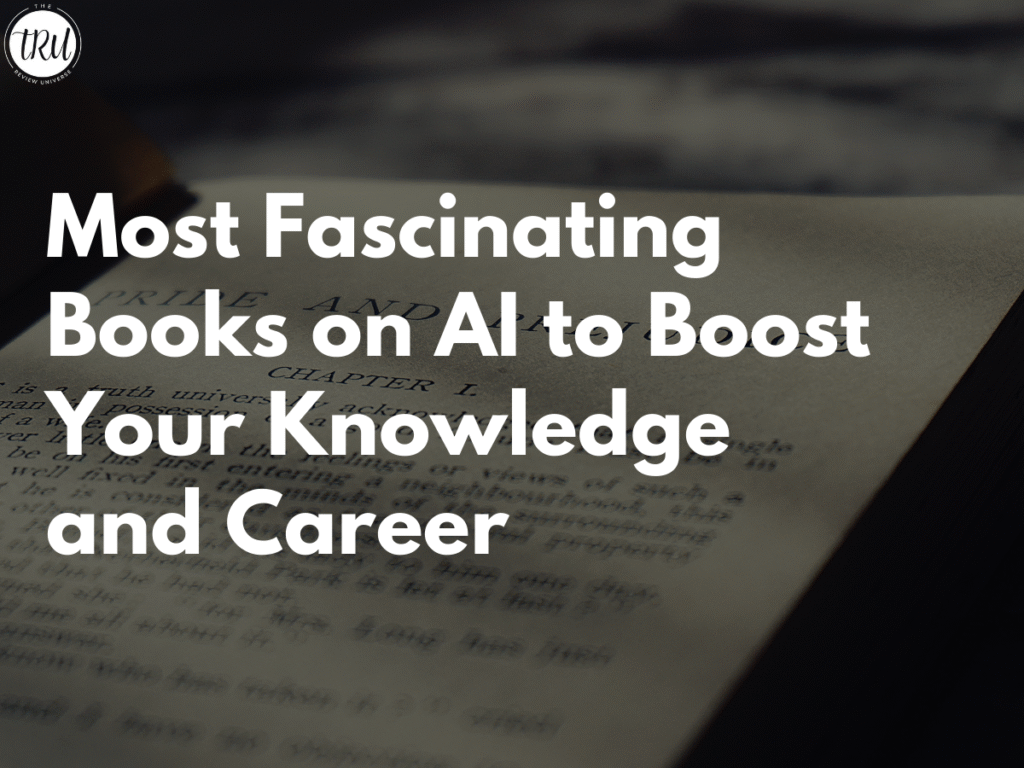
Artificial Intelligence (AI) is no longer a futuristic concept—it’s here, shaping industries, transforming careers, and influencing global decisions. Whether you’re a tech enthusiast, a policymaker, or a curious reader, understanding AI is crucial in today’s rapidly evolving world. These 5 must-read AI books offer diverse perspectives, from beginner-friendly guides to deep explorations of AI’s ethical and societal implications.
1. Winning With AI : Your Guide to AI Literacy by Jaspreet Bindra and Anuj Magazine
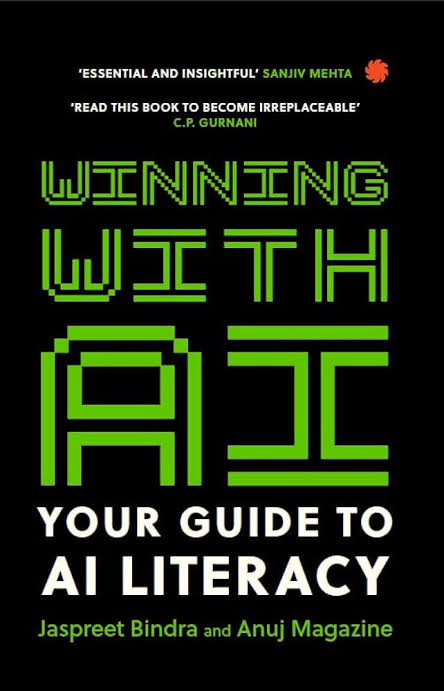
Winning With AI : Your Guide to AI Literacy by Jaspreet Bindra and Anuj Magazine is written in the format of a powerful and effective five part framework that teaches readers instrumental knowledge to aid people in understanding artificial intelligence along with practical learnings that help in kickstarting their careers with the boost that artificial intelligence provides.
The website suggests that “this book …offers a clear, grounded understanding of a rapidly evolving field. It avoids hype and focuses on what truly matters…”
2. Artificial Intelligence: A Guide for Thinking Humans by Melanie Mitchell
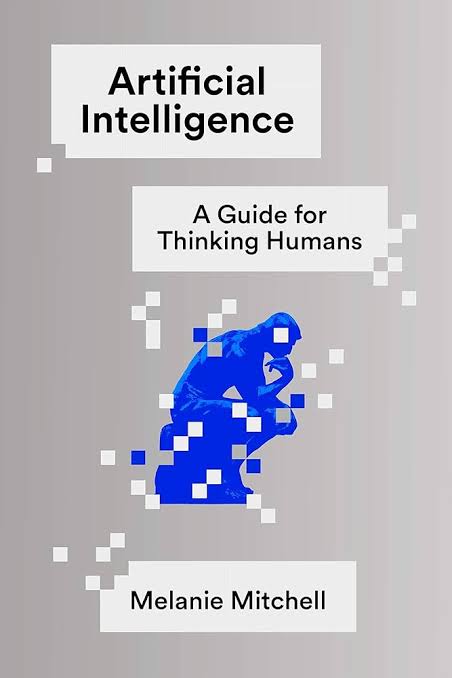
Artificial Intelligence: A Guide for Thinking Humans by Melanie Mitchell is a 2019 non-fiction book that emphasizes on artificial intelligence and argues against the overestimation of Artificial Intelligence’s capabilities.
Mitchell is a Sante Fe institute professor who presents examples of Artificial Intelligence systems like “Watson” and opines that these artificial intelligence systems fail to reach the expectations of common sense of ordinary human beings.
She argues for the inculcation of commonsense reasoning abilities in artificial intelligence systems to create an AI system that will possess the capacity of superintelligence.
The book description in Amazon notes that “Melanie Mitchell separates science fact and science fiction in this sweeping examination of the current state of AI and how remaking our world.”
3. A Layman’s Guide to Artificial Intelligence: Your Questions Answered by Hiren Doshi
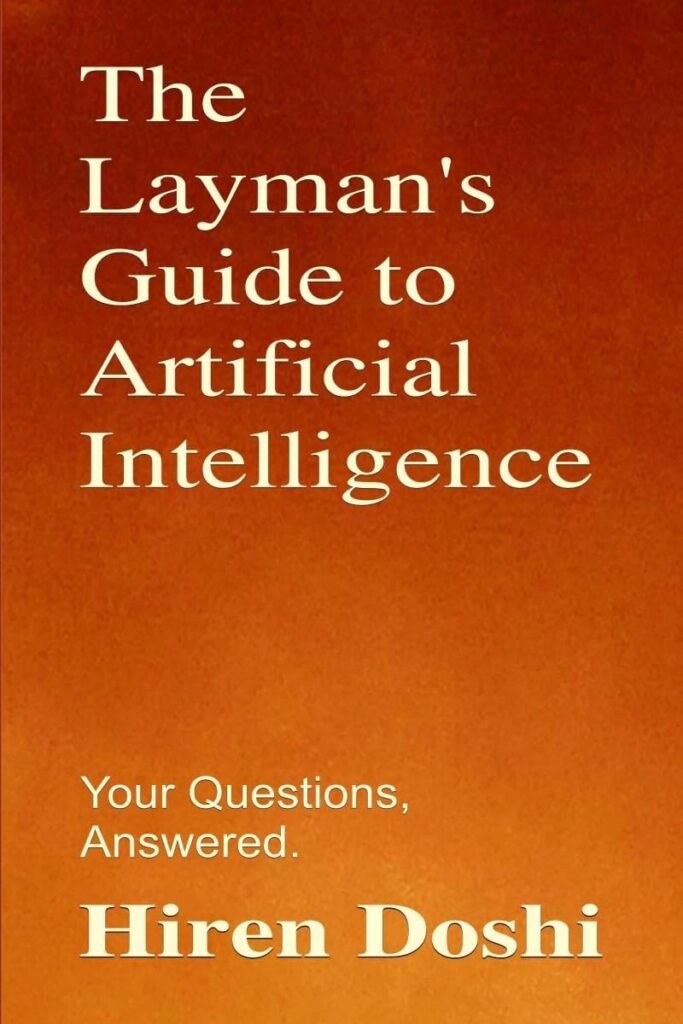
This practical guidebook offers a comprehensive and accessible introduction to the world of artificial intelligence.
True to its title, it serves as a modern-day holy grail for readers seeking to understand the core principles and transformative potential of AI.
Whether you’re a curious beginner or someone looking to deepen your knowledge, the book breaks down complex concepts into digestible insights without sacrificing depth.
It captures why artificial intelligence is considered one of the most revolutionary forces of our time, making it an essential read for anyone eager to explore the future shaped by intelligent technology.
4. The Coming Wave: Technology, Power and the Twenty-first Century’s Greatest Dilemma by Mustafa Suleyman and Michael Bhaskar
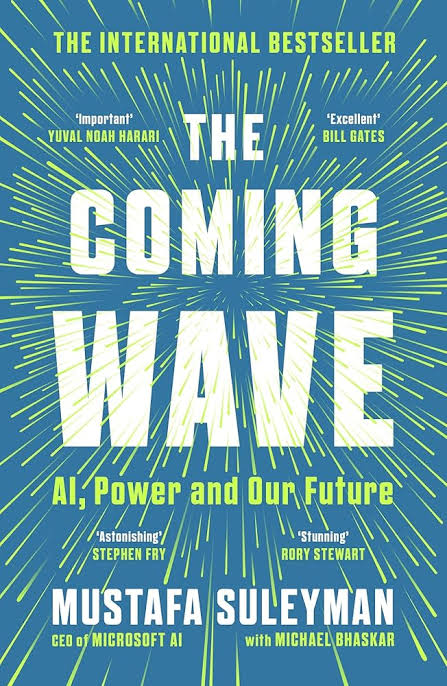
Reviewed by Bill Gates and awarded several acclaimed awards,this book represents the grave dangers that loom in our future, in the instance that artificial intelligence’s growth is not controlled and supervised.
With powers to control and eventually destroy humanity as we know it, artificial intelligence needs to be harnessed extremely carefully to avoid escalation into the dark potentialities.
Suleyman dubs the requirement to control dangerous technologies and advancements as the “containment problem” — a reference to the need to contain and maintain control over powerful technologies as the eminent challenge of our age.
Google Books describes “In The Coming Wave, Suleyman shows how these forces will create immense prosperity but also threaten the nation-state, the foundation of global order. As our fragile governments sleepwalk into disaster, we face an existential dilemma: unprecedented harms on one side, the threat of overbearing surveillance on the other.”
Read Similar Articles at: The Review Universe
5. How AI Ate the World: A brief History of Artificial Intelligence -and it’s Long Future by Chris Stokel- Walker (the author of Youtubers and Tiktok Boom).
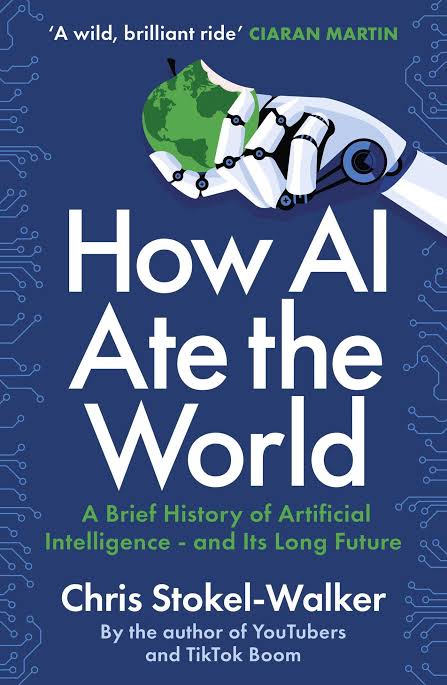
This book delineates the history of artificial intelligence from its inception and growth during the Cold War to its exponential advancements in the twenty-first century.
Chris Stokel- Walker provides insider perspectives on the capabilities and complexities of artificial intelligence systems alongside interviews with tech moguls at Google and OpenAI, who were responsible for building and developing of Gemini and ChatGPT respectively.
These Silicon Valley innovators and developers share their vision of the heights artificial intelligence systems could reach.
Walker also underscores the drawbacks of Artificial Intelligence, by speaking to workers who have lost their jobs to these bots and attempts to ascertain critical questions about the AI revolution.
Reviews – The Daily Telegraph says that How AI Ate the World is “An excellent starter for those who want to gain an insight into how AI works and why it’s likely to shape our lives.”
FAQ’s ( Frequently Asked Question)
Q1. Which book is best for beginners to learn about Artificial Intelligence?
If you’re new to AI, A Layman’s Guide to Artificial Intelligence by Hiren Doshi is the best starting point. It explains core concepts in simple language without overwhelming technical details. Winning With AI by Jaspreet Bindra and Anuj Magazine is also great for professionals who want practical career-focused AI knowledge.
Q2. Which AI book gives a realistic picture of the technology without hype?
Artificial Intelligence: A Guide for Thinking Humans by Melanie Mitchell is perfect for understanding AI’s real capabilities and limitations. It separates facts from exaggerated claims and explains what AI can and cannot do today.
Q3. What is the best AI book for understanding the risks and ethics of AI?
The Coming Wave by Mustafa Suleyman and Michael Bhaskar offers an in-depth discussion of AI’s potential dangers, from societal disruption to surveillance concerns. It introduces the concept of the “containment problem” and how we might manage powerful technologies responsibly.
Q4. Which AI book covers both the history and future of Artificial Intelligence?
How AI Ate the World by Chris Stokel-Walker provides a complete timeline—from AI’s Cold War origins to breakthroughs like ChatGPT. It also offers predictions about AI’s future impact on society.
Q5. Are these AI books suitable for non-technical readers?
Yes. All five books on this list are written for a general audience. They use real-world examples, accessible language, and engaging narratives, making them ideal for readers without a technical background.
Q6. Which AI book should professionals read to apply AI in their careers?
Winning With AI by Jaspreet Bindra and Anuj Magazine offers a structured, five-part framework to help professionals understand AI’s business applications and leverage it for career growth.
